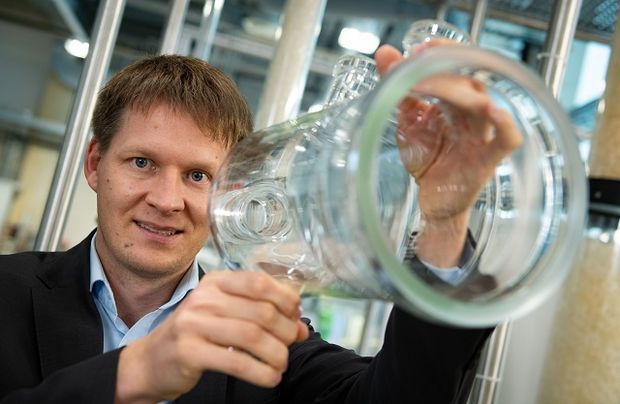The TN Faculty is pleased to welcome ten new professors to the JKU. Today we spoke with Mark Hlawitschka.

Mark Hlawitschka has been teaching and conducting research at the JKU as a professor for Engineering Materials and Metals since October 1, 2020. The 37-year-old studied mechanical & process engineering and electrical engineering at the TU in Kaiserslautern (Germany). He earned his post-doc in 2019 in the field of "Thermal Process Engineering." During this interview, he talks about this field in more detail as well as how AI is increasingly becoming a part of this area.
What is your area of research?
Prof. Mark Hlawitschka: Process engineering focuses on changing substances in terms of their nature, properties or composition and in accordance with scientific laws while paying particular attention to the process’s technical and economic implementations. To date, many of these processes are based on simple correlations which cannot always guarantee upholding modern requirements for safety, product quality, energy demand, and fluctuating boundary conditions (energy transition, recycling valuable materials). My research aims to continue clarifying the complex interaction behind materials design and material & energy transport while simultaneously laying a foundation to digitalize process plants. In addition, application-related fields, such as purifying rare earths out of batteries, methanol synthesis, and purifying wastewater streams through membrane distillation play a significant role in research, now and in the future.
What do you find particularly fascinating about this area?
Prof. Mark Hlawitschka: Process engineering has always driven new methods/applications. In research, new measuring techniques as well as methods can usually be directly applied to application areas. At the same time, process engineering is a link between different disciplines in mathematics, chemistry, mechanical engineering, computer science, etc., and in the past, this has led to very interesting collaboration efforts. The focus over the past few years has mainly been on digitizing individual equipment as well as entire industrial complexes. This not only includes using old measurement technology, but new, also very promising paths via machine learning as well as artificial intelligence.
Why is this research even necessary, meaning how will it improve our lives?
Prof. Mark Hlawitschka: Process engineering is a part of all areas in life and extends to food production, medicines, clothing, materials, and building materials. In all of these areas, developing new processes, measurement techniques as well as acquiring a better understanding of technical implementation leads to new innovations and improved products. Topics that will most certainly be crucial in the future include producing drinking water, recycling, and using new processes to help us avoid waste.
Why should students take your classes?
Prof. Mark Hlawitschka: Because education and teaching are much more than just presenting the subject matter.
What are you currently working on?
Prof. Mark Hlawitschka: In addition to reshaping and growing the institute, I am currently working on a project to describe and design three-phase systems. The findings could contribute to, for example, the sustainable production of methanol out of CO2.
What are your hobbies?
Prof. Mark Hlawitschka: Skiing, sailing, inline field hockey.
What else do you want to do or achieve in your life?
Prof. Mark Hlawitschka: Watch my children grow up. Travel to different countries and learn about new cultures and regions.








